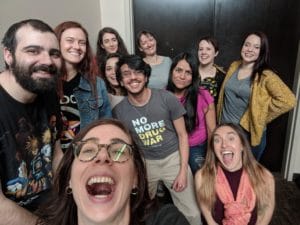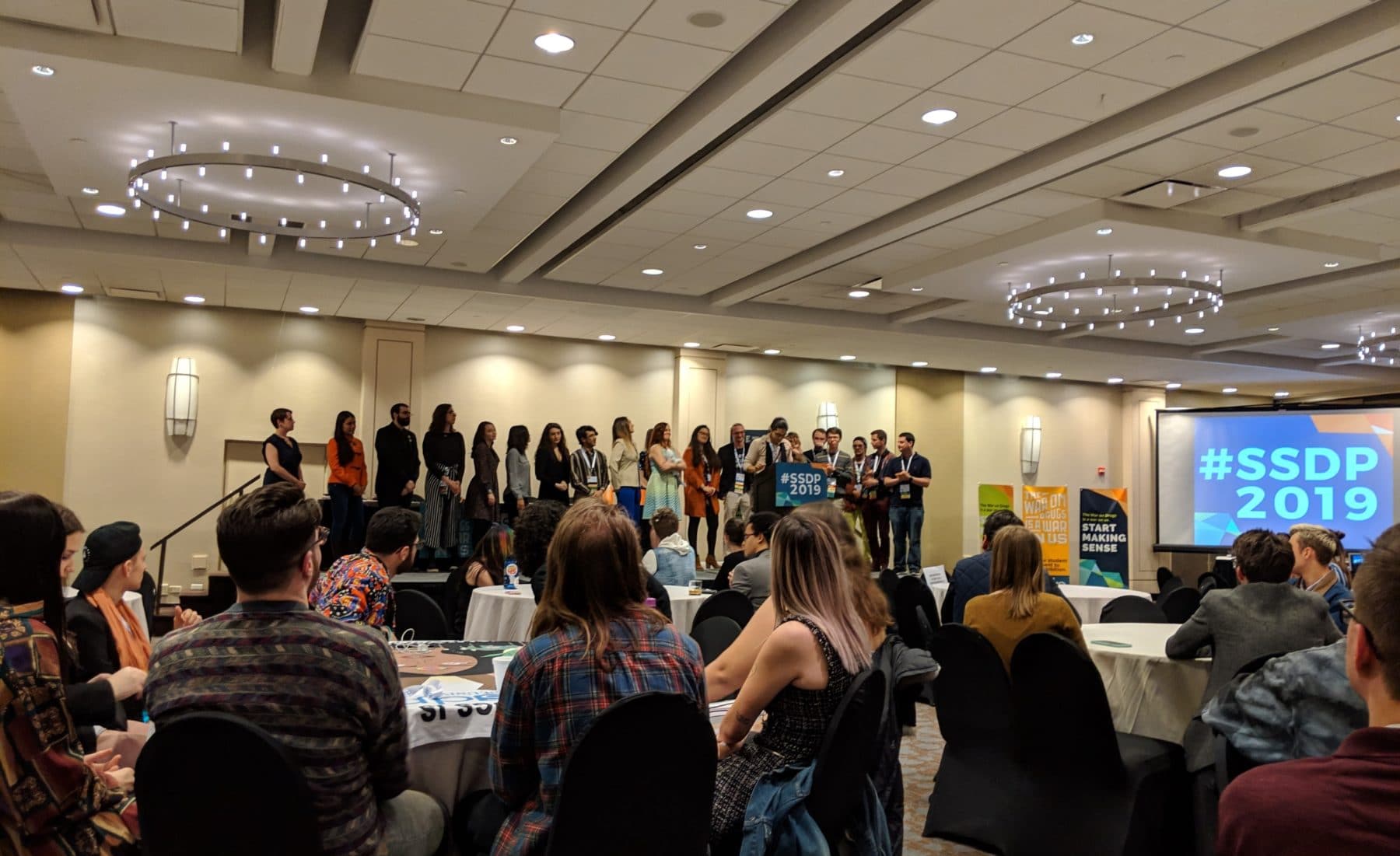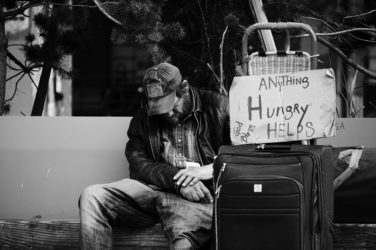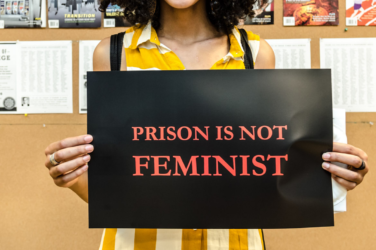On the last weekend of March, hundreds of student activists from around the US and the world converged in Chicago for the 21st annual Global Students for Sensible Drug Policy Conference.
Students for Sensible Drug Policy (SSDP) organizes this three-day annual event for people in high school, college or university, as well as alumni, activists, professionals and many more who come to share knowledge and learn about the movement to end the War on Drugs.
SSDP formed in 1998 when President Bill Clinton signed into law amendments to the Higher Education Act that allowed the federal government to deny financial aid to college and university students convicted of low-level drug charges.
These penalties were slightly relaxed in 2009, so students can be denied federal financial aid only if their offense was committed while they were already enrolled and receiving aid. In 2016, Pennsylvania Senator Bob Casey introduced a measure to eliminate the question about past drug convictions from the Free Application for Federal Student Aid (FAFSA).
SSDP now has over 370 chapters on campuses throughout the United States and in 33 countries, comprising a network of over 4,300 activists. Over its 20-plus years, SSDP has, for example, supported Amendment 64 to legalize cannabis in Colorado in 2012, rallied and phonebanked for Question 4 for Massachusetts legalization in 2016, supported 2018 cannabis reforms in Michigan, Missouri, Utah and North Dakota, and fought to reduce punishments for people using cannabis on college campuses.
The movement to end the drug war is fighting a two-front battle.
In 2017, I personally took part in a marijuana legalization lobby day with SSDP peers from around New York state in Albany. There is no question that SSDP is the most visible platform for young people interested in drug policy reform activism.
In the age of post-Donald Trump ennui, the movement to end the drug war is fighting a two-front battle. On the one hand we continue the decades-long struggle for the right of people to use drugs without punishment or stigma. But we also face an internal struggle over how to reform our drug policies and build alternative systems in their place—and that includes confronting societal problems that manifest within our movement.
Psychedelics are being green-lit by the FDA for therapeutic research. But psychedelic institutions struggle to protect women from sexual assault, or to support people of color at any level.
Cannabis is becoming a global, multi-billion-dollar industry. But hundreds of thousands of people retain cannabis convictions on their records, and the industry’s rewards are being reaped by a small, white business elite.
Rebuilding After Prison
SSDP addressed such questions earnestly, opening the conference with a discussion led by Orlando “Chilly” Mayorga, a re-entry and community anti-violence coordinator at the Precious Blood Ministry of Reconciliation Community Center in Chicago, and Marlon Chamberlain, a community project manager for the READI Chicago Initiative against gun violence. Both men survived years in the prison system.
“My experience in prison was everything less than human,” Mayorga recounted, having served 20 years for a murder he committed at age 17. “And yet I was able to find my mana while in prison through relationships I built with my other brothers doing time. It made me think about how I could apply what I learned to building relationships with young people out here.”
They criticized the distinction between “non-violent” and “violent” offenders in drug reform conversations.
Chamberlain, who served 10 years for a drug charge, made the same realization during his sentence. “I had an opportunity in the federal system to be exposed to people I could never meet back home,” he said. “I learned the stock market and enrolled in college courses. When I was released, I felt grateful for the many men who poured into me in prison—and now I want to give back.”
Mayorga and Chamberlain criticized the distinction between “non-violent” and “violent” offenders in drug reform conversations. “Violent offenders are deemed the worst of the worst, yet it was violent offenders who were my best educators and mentors,” Mayorga said. Understanding that too many young people are exposed to trauma in their families and neighborhoods, Mayorga and Chamberlain devote themselves now to fighting gun violence and counseling youth in the Windy City.
Accelerating Diversity
This year, students and activists organized SSDP’s first-ever People of Color Dinner and healing circle. The diverse group in attendance shared experiences of feeling both included and excluded based on their racial, gender, or sexual identities within forums ranging from the drug reform movement to their own families.
“Despite SSDP’s current challenges, there’s a world of difference now from when I first started in 2009,” said Jason Ortiz, an SSDP alum who is now and president and board chair for Connecticut Puerto Rican Agenda.
“There was a tiny handful of people of color at my first conference in San Francisco 10 years ago, but that weekend there were over 40 people who came to our dinner. It was a proud moment to see that we had our own space. We’ve also come a long way with having more women in the organization and elected to the board of directors; the network is definitely diversifying.”
“There were a lot of white male folks in the room who didn’t think it was necessary.”
People of color, Ortiz explained, have had to fight to make themselves leaders in the drug policy reform movement. He cited the most vocal cannabis organizations as being built and led by people of color who started their careers at SSDP—including the Minority Cannabis Business Association, the Massachusetts Recreational Consumer Council, and the Cannabis Cultural Association.
Ortiz believes SSDP’s leadership have advanced much faster in fulfilling values of inclusion and diversity than many of their peers in the movement. “Still, SSDP has been a source of my most intense feelings of inclusion and exclusion in my life,” he said.
He described his experience being first elected to the SSDP board in 2010, on a platform of creating a committee dedicated to diversity, inclusion, and targeted outreach to marginalized groups. “But there were a lot of white male folks in the room who didn’t think it was necessary and thought it was divisive.”
Ortiz’s proposal ultimately passed because it had strong allies in the movement. In 2011 SSDP created its first diversity board, which today is the Diversity Awareness Reflection and Education project (DARE). It provides educational resources to teach members around the world how to do better engage with people from underrepresented groups in their network. It also provides scholarships for people from marginalized communities to attend SSDP events.

Photo by Stacia Cosner/SSDP
A Movement’s #MeToo Reckoning
In another first this year, SSDP featured a #MeToo roundtable discussion among a group of women who shared their experiences of sexual assault and violence working in the drug policy reform movement. One of the presenters, Rachelle V. Yeung of Washington, DC, spoke to Filter about her panel.
“This really came through frustration from the lack of response or acknowledgement from movement leadership on this issue,” she said. She described how the #MeToo issue became visible in the movement after Harvey Weinstein, and how increased scrutiny led to Rob Kampia being removed from his leadership at the Marijuana Policy Project and National Cannabis Industry Association.
“I constantly asked myself, how can I advance in my career and this organization and not have to touch or sleep with this man?”
“For me it isn’t enough that there was one individual we could now say is no longer part of the movement and therefore we are safe,” Yeung said. “I feel we need a reckoning about how someone like Kampia, who was a known predator, had been allowed to be a leader in our movement for so long after his behavior became publicly known, and a recognition there are still other predators in our movement who remain unnamed and in positions of power.”
Yeung described a simple but painful situation: Should you, a young woman just hired by the company you’ve dreamed of working for, accept an offer from your new executive director to get drinks after work? How would a white male in your shoes respond to the same offer? And is it a red flag that your boss claims he retrieved your personal phone number from your resume?
“I constantly asked myself, how can I advance in my career and this organization and not have to touch or sleep with this man?” Yeung said during her presentation. “This is fucking exhausting. I just wonder how many talented, brilliant young activists we have lost for every Rob Kampia we protected.”
Making Legalization Better
While much of the conference’s programming focused on addressing racism, sexism, and privilege within the movement’s ranks, the weekend’s discussions also questioned existing drug policy reforms and how to improve on them. A round-table on the conference’s last day explored the current state of the legal cannabis industry and its slow progress in building equal opportunities for marginalized communities.
“For the younger people coming up now working on these issues, you’ve never known a world without legalization,” said Kris Krane, president of 4Front Ventures, a cannabis investing firm. “It’s important to have some context and optimism. When you think about where things were 20 years ago when I first got started, these weren’t discussions we could have.”
“It’s understandable for people to be angry now about the things that aren’t going right.”
“We were thinking about, how do we make sure people aren’t getting arrested for using weed, that HIV patients in San Francisco aren’t going to jail for using a medicine? We weren’t thinking about how to have a free and equitable market. It’s understandable for people to be angry now about the things that aren’t going right, and channel that energy towards making legalization better.”
The cannabis activist and the investor, Krane argued, are more similar to one another than different. Both are breaking federal law every day to work with a Schedule I narcotic, and need to further reform laws before they can succeed. Even someone like John Boehner, who joined the industry for an obvious financial incentive having opposed legalization in his political career, has extensive connections that could help advance activist goals.
But Krane’s co-presenter, Joe Gilmore of the Massachusetts Recreational Consumer Council, countered that there is no virtue in a legal cannabis industry that perpetuates economic inequality and racism. “Large cannabis conglomerates must have significant obligations to ‘cut the check’ in order to incentivize local ownership and help restore the communities decimated by marijuana criminalization,” he told Filter.
“Buzz words like ‘equity’ and ‘community reinvestment’ sound nice on paper, but unless cannabis businesses have concrete strategies such as diversity requirements, plans for corporate social responsibility, and measurable plans to economically uplift targeted communities, we won’t see any significant changes.”
Gilmore, who co-founded his organization in 2017 after his home state of Massachusetts legalized cannabis, urged more young people to take advantage of technology to become politically active, and engage with networks like SSDP to find mentors and allies around the world.
Values and Vision
The movement to end the War on Drugs is continually and rapidly gaining steam—so much so that finally, even the United Nations thinks the time has come for a public-health approach to drugs. And support for marijuana legalization is becoming a no-brainer for Democratic presidential candidates.
These are the years when a grassroots network like SSDP is most needed—but also when it most needs to clearly define its values and vision for a better world order.
“There is an inherent advantage to groups like SSDP bringing people into a space where they are encouraged to expand their understanding of the world around them, in a way other communities don’t have access to,” Ortiz said. “Especially when you involve substances like psychedelics. We can start to confront problems that may not be as they seem and address their root causes—internally, but also as a community.”
Top photo via SSDP





Show Comments